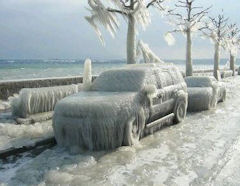Well, well, well, Justin Gillis with the New York Times has acknowledged an inconvenient truth: “The rise in the surface temperature of earth has been markedly slower over the last 15 years than in the 20 years before that. And that lull in warming has occurred even as greenhouse gases have accumulated in the atmosphere at a record pace.”
What is a climate alarmist to make of such a revelation? Gillis admits that climate scientists are stumped. (I may be wrong about this, but I do not believe that the New York Times is subsidized or controlled by the climate change-denying Koch Brothers, so Gillis’ reporting cannot be impugned.)
The slowdown is a bit of a mystery to climate scientists. … Given how much is riding on the scientific forecast, the practitioners of climate science would like to understand exactly what is going on. They admit that they do not, even though some potential mechanisms of the slowdown have been suggested. The situation highlights important gaps in our knowledge of the climate system, some of which cannot be closed until we get better measurements from high in space and from deep in the ocean.
Despite the “important gaps in our knowledge of the climate system,” Gillis remains ever-optimistic that the world climate remains on a disastrous trajectory. One theory for the lull in rising temperatures is that “aerosols” — particulate pollution — from China are reflecting sunlight that otherwise would have warmed the atmosphere. Another is that the heat is hiding in the ocean deep, where our sensors cannot readily detect it.
The stubborn refusal of temperatures to rise as forecast by climate models may mean that climate processes are a tad more complex than previously thought. “In a climate system still dominated by natural variability,” Gillis writes, “there is every reason to think the warming will proceed in fits and starts.”
If past is prologue, this current plateau will end at some point, too, and a new era of rapid global warming will begin. That will put extra energy and moisture into the atmosphere that can fuel weather extremes, like heat waves and torrential rains.
We might one day find ourselves looking back on the crazy weather of the 2010s with a deep yearning for those halcyon days.
A man can always dream, can’t he? It’s hard to imagine a fate worse than being forced to concede that Rush Limbaugh was right!
In all seriousness, do 15 years of stagnant temperatures prove that global warming is a hoax? Not at all. Gillis actually might be right on this point: The lull may reflect natural variability. The points that I would emphasize are this: (1) The stagnant temperatures were not predicted by the climate models, and (2) our understanding of climate dynamics is incomplete.
It would be folly to conclude on the basis of current evidence that human-influenced global warming is not occurring. As I’ve always said, follow the science. But one conclusion I feel safe in drawing is this: The science is not “settled.”



